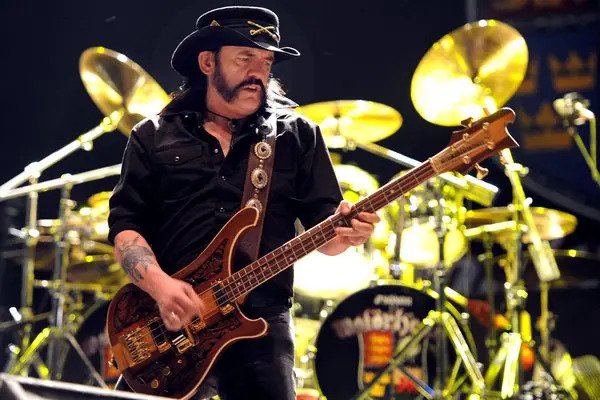Few musicians can honestly say they have had as much fun in their careers as Lemmy. Lemmy, who never stopped until his dying hours on the band’s final CD, Bad Magic, was the epitome of how to age gracefully with his music. He had worked as a roadie for Jimi Hendrix and helped build the foundation of modern metal with Motörhead. Lemmy believed that certain rock and roll icons were overindulging in the festivities, even though he was one of the true survivors for a time.
However, Lemmy was always renowned for having a sharp tongue for up-and-coming performers. In the 2000s, Lemmy dismissed nu-metal as a joke and never offered an apology for his views on more recent bands. He thought that a microphone held over his head and a blown-out amplifier would be sufficient to please an audience.
He was also, for the most part, correct. Apart from his outstanding contributions to the records of other musicians, he established the benchmark for hard rock with groups like Ace of Spades and Overkill. They played fast-paced songs with lyrics influenced by drugs, sex, and rock & roll.
The 1970s were giving way to stadium rock performers for the first time, just as Lemmy was beginning to define what rock & roll might be. The Who redefined what a live concert was, with Keith Moon turning into a wild beast every time he picked up his drum set, in between the incredible displays that Motörhead could put on for any crowd that would have them.
The Who may have had the greatest live performances at the time, but Moon’s passing in the late 1970s placed doubt on the band’s future direction. Lemmy believed the band had long since passed its prime, even though they continued to release hits like It’s Hard well into the 1980s and beyond.
Lemmy would have told The Guardian that The Who should have chucked it in after losing their core lineup when discussing the fate of the genre. Since the band had already lost founding bassist John Entwistle, Lemmy felt that they were a ghost of their former selves, stating, “The Who are f*cked. I don’t know why they still bother without John and Keith, you know? They should have broken up in 1978.”
The band may not have been as powerful without Moon, but their subsequent career certainly had its share of great points. Townshend began to embrace the synthesizers he had helped pioneer in the early 1970s after scoring another hit with “You Better You Bet.” This allowed him to create songs that were perfectly appropriate for the MTV age without having to cater to a certain demographic.
Even Townshend realized that his music had become excessive by the time he persevered into the 1980s. A song like “Eminence Front” was an open message to different Who fans, reminding them that much of their new music was a put-on compared to what they had previously worked on, even if he might have been able to compose singles that made it into the charts. Even though Lemmy’s career was always slow-burning, he couldn’t help but perceive The Who as a band that was making a valiant effort to return to their former grandeur.
